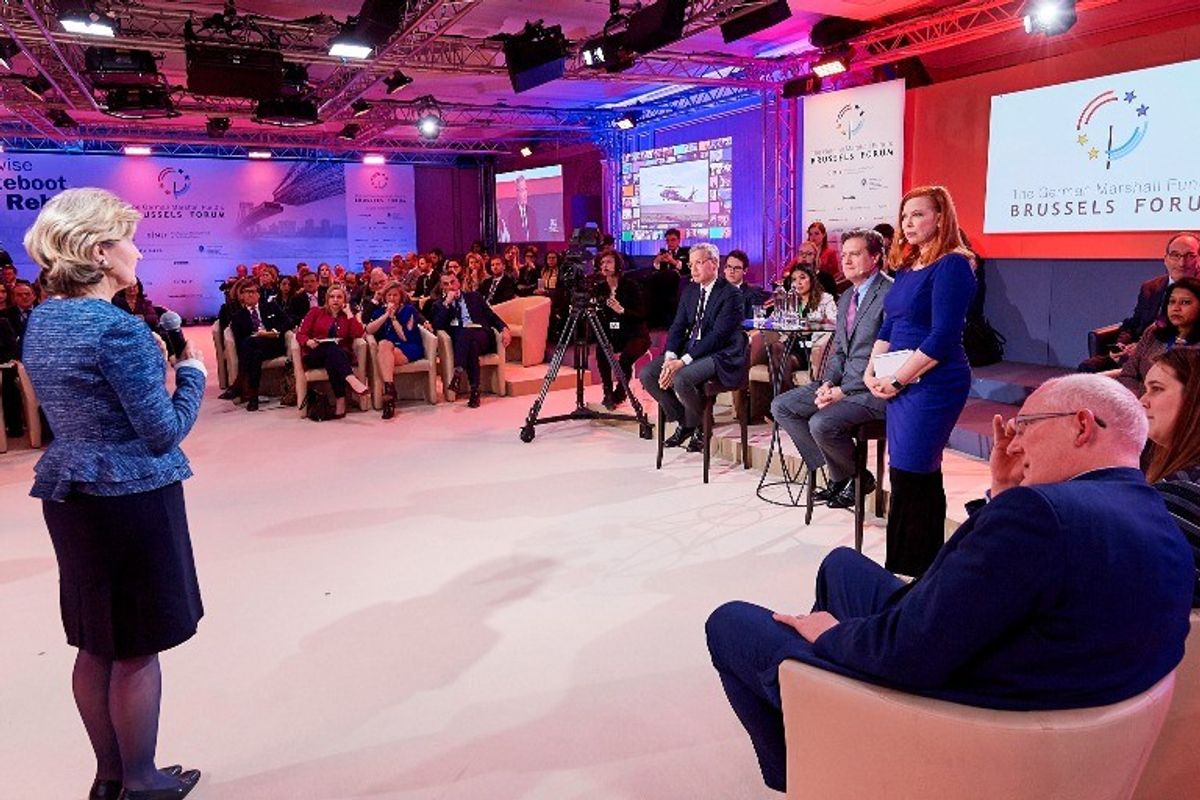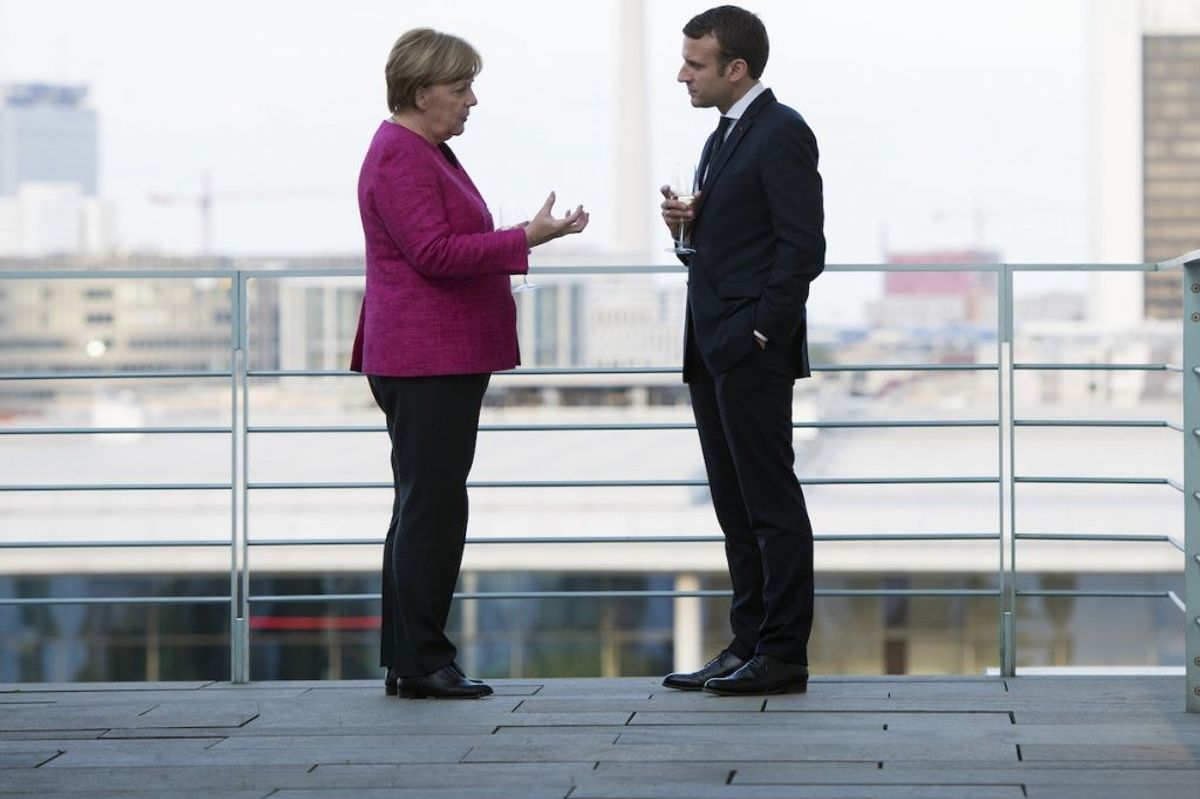Brits are expected to come out en masse on June 23 to vote on whether they want their country to stay in the European Union. The Cipher Brief spoke with Heather Conley, Senior Vice President for Europe, Eurasia, and the Arctic and Director of the Europe Program at the Center for Strategic and International Studies (CSIS), about the implications of the vote. Prior to joining CSIS, Conley served as Deputy Assistant Secretary of State in the Bureau for European and Eurasian Affairs.
The Cipher Brief: If Britain votes to remain in the EU, what will the implications be for national security and intelligence sharing?
Heather Conley: From a U.S. perspective, U.S.-UK intelligence sharing will not be impacted by the UK referendum. The U.S. addresses European security issues through NATO, which is also not impacted by the referendum. In many ways, what distinguishes the U.S.-UK “special relationship” is its very strong bilateral military and intelligence relationship.
One assumes that a remain decision would allow British leaders to turn their attention more fully to a full range of international security issues. Two weeks after the referendum is held, NATO will hold a summit to discuss many of these important issues.
In a European context, intelligence capabilities and sharing are a national competency. There is no EU intelligence unit. Although there is a European Defense Agency and the EU does conduct small-scale military and stabilization operations, it falls upon the individual EU countries to send their national forces to an EU operation. The UK typically utilizes NATO or coalitions of the willing to conduct military operations. Although Prime Minister David Cameron has suggested that a leave decision could potentially lead to war in Europe, this seems very, very unlikely.
TCB: What are the implications for the cyber landscape?
HC: Bilateral cyber cooperation is very similar to the U.S.-UK intelligence and military relationship. The U.S. also enjoys a close bilateral collaboration with the UK on a whole range of cyber issues, as both countries have substantial capabilities. This will not be impacted by the referendum. If anything, a leave decision might potentially free the UK from more onerous EU privacy regulations should it choose to do so. The U.S. and EU have struggled to find a compromise to exempt national security issues from rigorous privacy protections.
TCB: And the implications for economics?
HC: Economic relations will likely be the most impacted area should there be a vote to leave the EU. First and foremost, the impact will be felt between the UK and EU, as it is unclear what trading relationship the UK will have with the EU in the future. In 2015, it is estimated that 44 percent of UK exports in goods and services went to EU countries. Should there be a leave decision, it may be that the UK will not participate in the single market and therefore it would need to negotiate bilateral free trade agreements with the EU, U.S., and many other countries. President Obama has stated that the UK would go “to the back of the queue” when it comes to priority countries with which the U.S. will negotiate. No one knows for certain how long it would take for these changes to occur, so it could be that nothing would change in the immediate aftermath of a leave decision. It is equally unclear what the future of the U.S.-EU free trade negotiations (Transatlantic Trade and Investment Partnership) will be, although it is unlikely that anything will be agreed before 2018.
TCB: How about the Implications for migration?
HC: A vote to leave would only impact EU migration (meaning migration coming from the other 27 EU countries). The UK is not a member of the Schengen agreement and therefore controls all non-EU migration. The number of EU immigrants coming to the UK is a major issue for the referendum. Prime Minister Cameron had promised to reduce EU migration, but it has reached an all-time high. The reason that some Britons want to leave the single market (to participate in the single market, a country must agree to the freedom of movement of labor) is to address EU migration – which seems a very high economic price (literally and figuratively) to pay to reduce migration. The most impacted border will be the border between the UK and the Republic of Ireland.
TCB: And finally, the implications for law enforcement and regulation within Britain?
HC: There are also implications for law enforcement cooperation as the UK is a member of EUROPOL, an EU cross-border law enforcement organization.
Regarding regulation, to participate in the single market, the UK over several decades has had to harmonize British national laws and regulation with EU laws and regulation. It is unclear how many existing British laws would need to be changed should the UK leave the EU or whether most of these laws would be maintained to foster UK-EU trade outside of the single market.
TCB: What happens if the UK decides to remain in the EU on issues related to economics, migration, and law enforcement?
HC: Simply put, very little changes. The fight will continue as both sides seek to punish one another for the past twelve months. Immediately following the referendum, the EU will have a lot of business to do as it has put many initiatives on hold until after June 23rd. It is important to note that in its negotiation with the EU in February 2016, the UK secured an agreement to opt out of “an ever closer Union” with the other members of the EU. In essence, the UK has the choice to opt out of nearly all the things that make the EU the EU, with the exception of the single market and EU immigration (the freedom of movement of goods and people). It is these two remaining vestiges that the UK referendum is about.
The UK has put about as much distance from itself and the EU as it possibly can and still be part of the EU. Resentment of this situation is acutely felt on both sides of the English Channel. Those Europeans who seek greater integration to make the Union work more effectively are held back by the UK. Conversely, there are those in the UK who see that what they formally joined in 1973 is a very different organization in 2016. It has been an uneasy relationship for many years, made more acute by the economic and migration crisis. But what this referendum has done is inspired other euro-skeptic parties across Europe to have their own national referendum on their membership in the EU. This is the unintended consequence of the referendum.
The most interesting aspect to watch should there be a remain decision is the future of the Conservative and Labor parties in Britain, as both have come under enormous internal strain.












